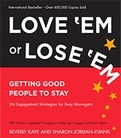BK Blog Post
Stop Telling People to Go Green!
 Posted by
Neal Maillet,
Editorial Director,
Berrett-Koehler Publishers Inc.
Posted by
Neal Maillet,
Editorial Director,
Berrett-Koehler Publishers Inc.
Neal Maillet has worked in book publishing for more than 25 years, and is responsible for acquiring and editing roughly half the titles BK publishes each year.
@font-face {font-family:"font";src:url("https://")}@media (touch-enabled),(-webkit-touch-enabled),(-moz-touch-enabled),(-o-touch-enabled),(-ms-touch-enabled),(modernizr){#touch{top:9px;position:absolute}}@media (transform-3d),(-webkit-transform-3d),(-moz-transform-3d),(-o-transform-3d),(-ms-transform-3d),(modernizr){#csstransforms3d{left:9px;position:absolute;height:3px;}}#generatedcontent:after{content:":)";visibility:hidden}@font-face {font-family:"font";src:url("https://")}@media (touch-enabled),(-webkit-touch-enabled),(-moz-touch-enabled),(-o-touch-enabled),(-ms-touch-enabled),(modernizr){#touch{top:9px;position:absolute}}@media (transform-3d),(-webkit-transform-3d),(-moz-transform-3d),(-o-transform-3d),(-ms-transform-3d),(modernizr){#csstransforms3d{left:9px;position:absolute;height:3px;}}#generatedcontent:after{content:":)";visibility:hidden}@font-face {font-family:"font";src:url("https://")}@media (touch-enabled),(-webkit-touch-enabled),(-moz-touch-enabled),(-o-touch-enabled),(-ms-touch-enabled),(modernizr){#touch{top:9px;position:absolute}}@media (transform-3d),(-webkit-transform-3d),(-moz-transform-3d),(-o-transform-3d),(-ms-transform-3d),(modernizr){#csstransforms3d{left:9px;position:absolute;height:3px;}}#generatedcontent:after{content:":)";visibility:hidden}@font-face {font-family:"font";src:url("https://")}@media (touch-enabled),(-webkit-touch-enabled),(-moz-touch-enabled),(-o-touch-enabled),(-ms-touch-enabled),(modernizr){#touch{top:9px;position:absolute}}@media (transform-3d),(-webkit-transform-3d),(-moz-transform-3d),(-o-transform-3d),(-ms-transform-3d),(modernizr){#csstransforms3d{left:9px;position:absolute;height:3px;}}#generatedcontent:after{content:":)";visibility:hidden}In their zeal to heal the planet, environmentalists have repeated their talking points so often that people feel like rolling their eyes every time they hear the phrase "go green." Here are five signs that people are getting sick of hearing about environmentalism:
5 Signs of "Green Fatigue"
- The number of people in the U.S. Who accept climate change is actually falling, not increasing. It fell 7% to 63% in 2013.
- Despite massive commitments to emissions change at Rio in 1992 and Kyoto, almost all countries ignored the targets and blew past them. Even worse, emissions worldwide have increased by 48%.
- Americans outlook on environmental quality is getting better even as the environment is getting worse.
- Four in Five People Happy with Air Quality Worldwide even though increases in emissions kill 3 million people each year. 81% of Asians are happy with their air even thought air quality in Asia has degraded!
- Even though more cars with better fuel efficiency are being built, sales growth is happening more among larger, less fuel efficient cars. There is also some evidence that people are buying bigger, less efficient cars because they’re too obese to fit in smaller cars. Despite all the press and new models, electric cars are a bit more than one half of one percent of the market.
However, even if people are fatigued with the ideas and concepts of environmentalism, a lot of them may "accidentally" be doing the right thing!
5 Signs that People Will Do the Sustainable Thing if You Don’t Use the Word “Sustainable”
- Young people are abandoning car ownership. Millenials are moving to cities for culture and cool, and just don’t see the need to own cars.
- More and more books are moving from paper to ebooks because they’re cheaper and more convenient, saving loads of trees—but that’s not the reason they do it. They do it because if they buy ebooks they are able to own more books, and avid readers really want that.
- Laptop sales have outpaced desktops because they’re more portable and just as powerful. But they use at leat 50% less energy (sometimes as much as 80% less energy) and don't require the same quantity of material.
- Software sales have moved from box stores to downloads because it’s faster and more convenient—but save massive amounts of paper, fuel, and aggravation.
- Puma sold more shoes with their “clever little bag” than with traditional shoe boxes, and passed $3BN in sales the first time. But the bag, was popular because it was handier, lighter, and could be resused, not because it saved scads of money, trees, fuel.
By default, we talk about sustainability as if it was a noble cause. Even though it might be a noble cause, using the "cause language" distracts people from focusing on their own self-interest. If you can find ways to use less goods and energy, you're able to put a LOT more savings in the bank. (Savings you need for things like college, home ownership, and retirement!) Organizations benefit as well- when they manufacture goods using fewer raw materials, their profit margins increase.
In Overfished Ocean Strategy, Nadya Zhexembabyeva proves that companies smart enough to understand the dynamics of a resource-scarce world will win this century's competitive show-down. You don't need to go green because it's noble. Go green because it's better. Find out more about Nadya's book.







